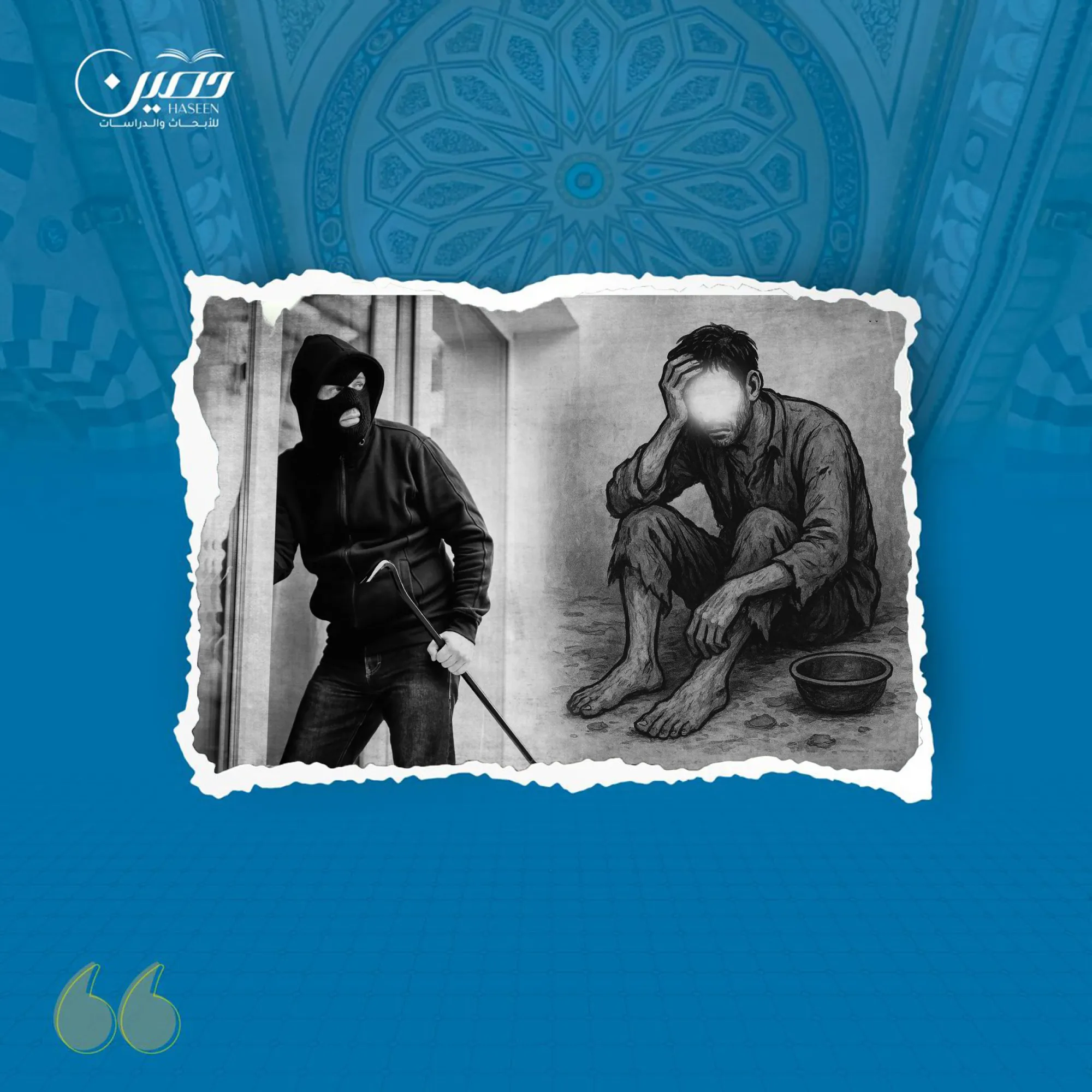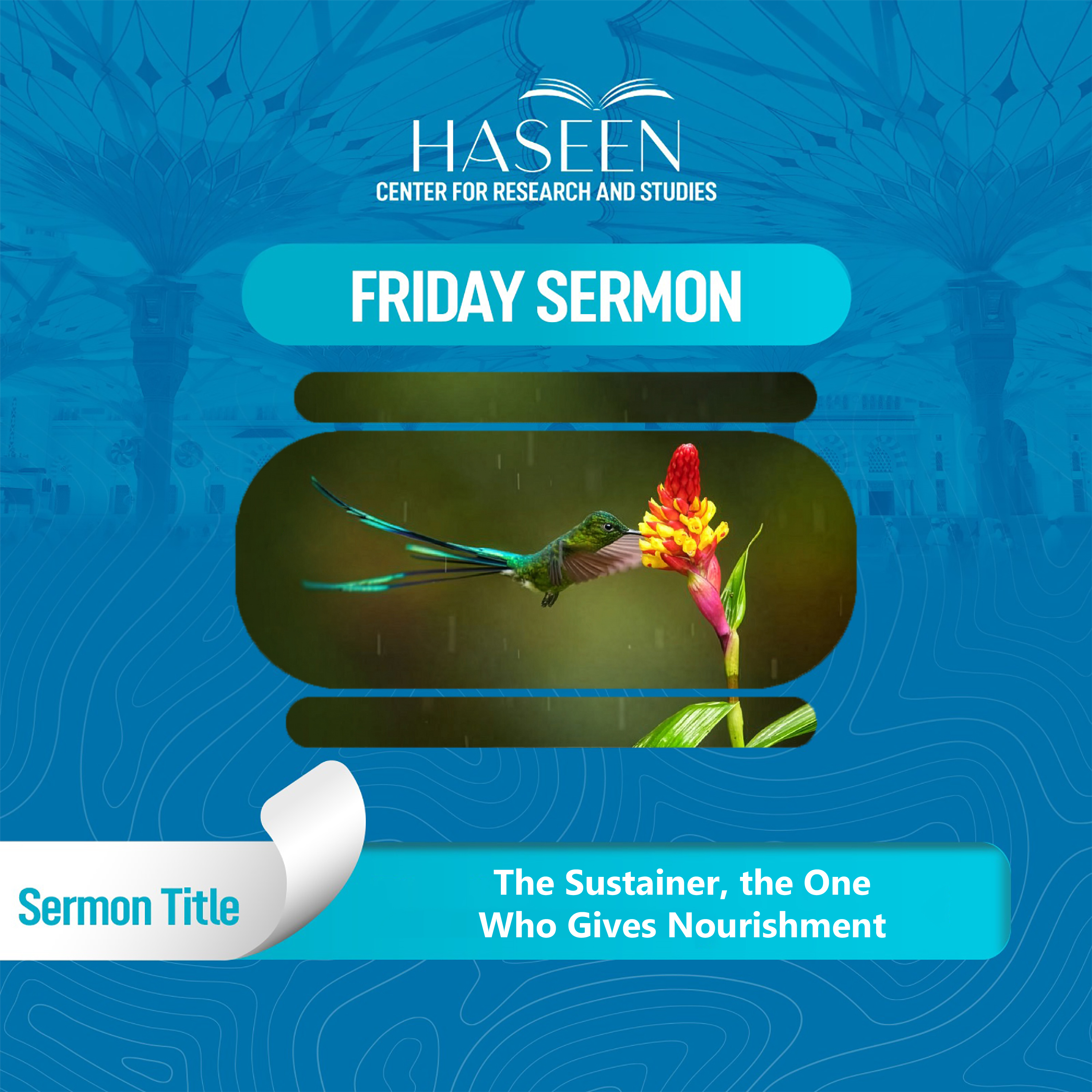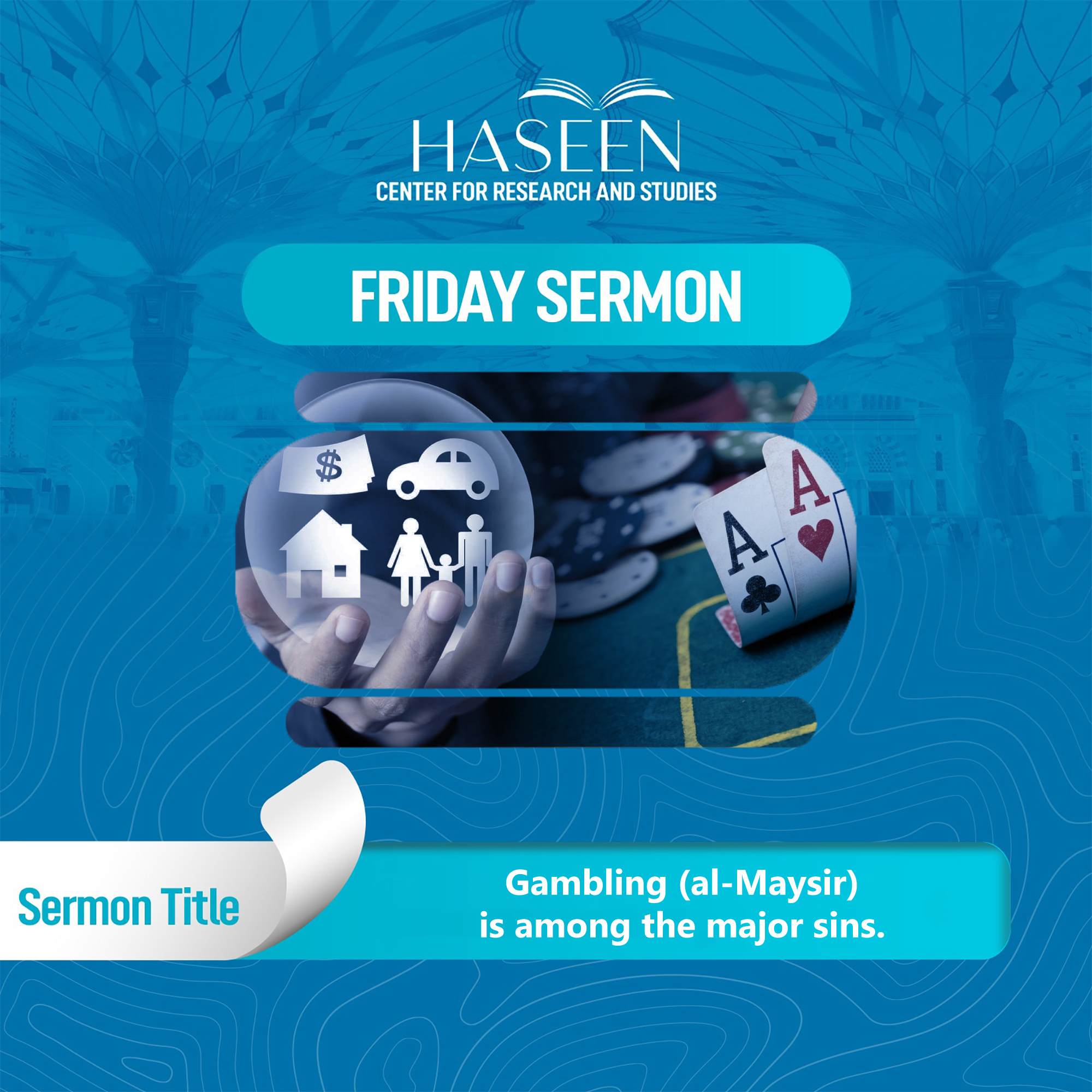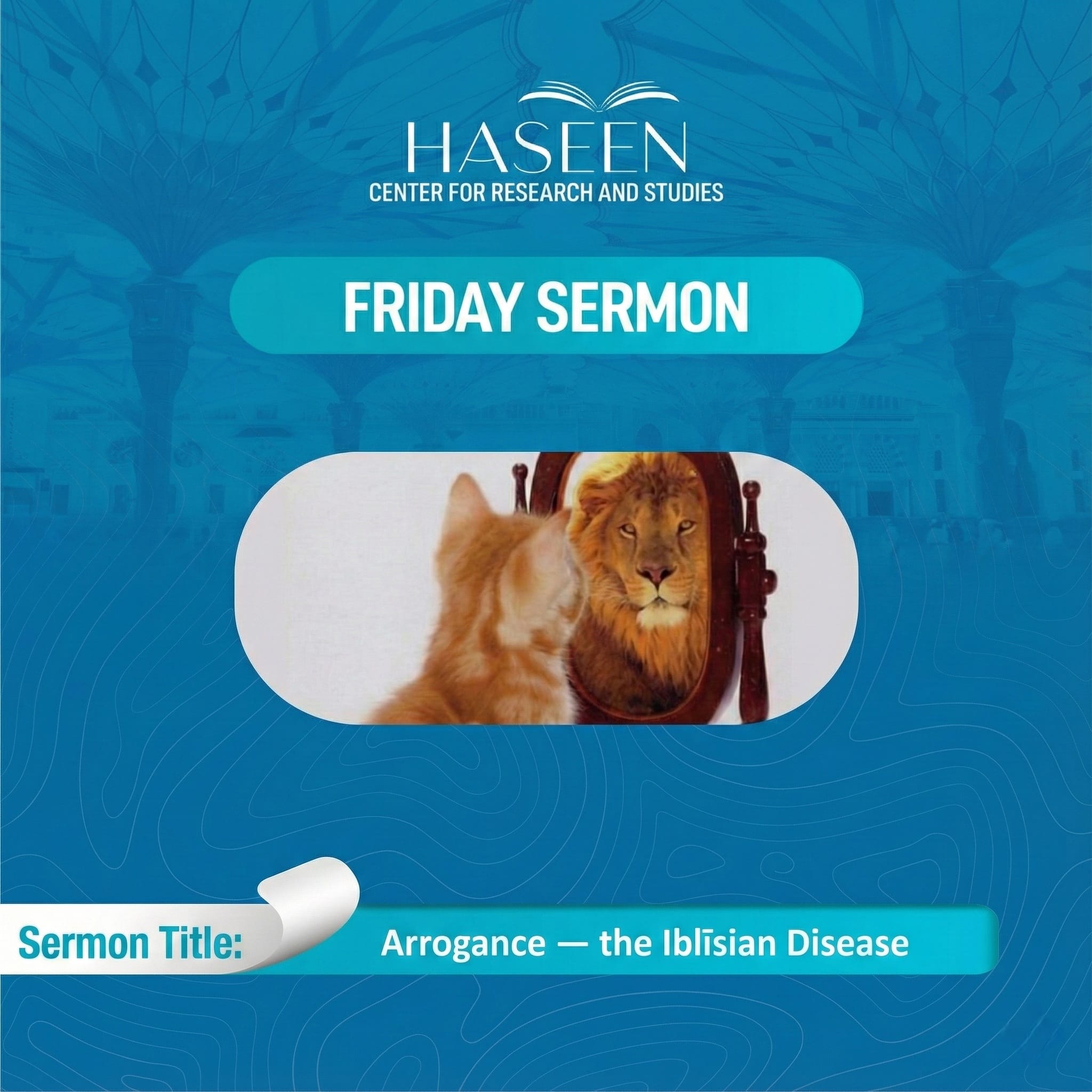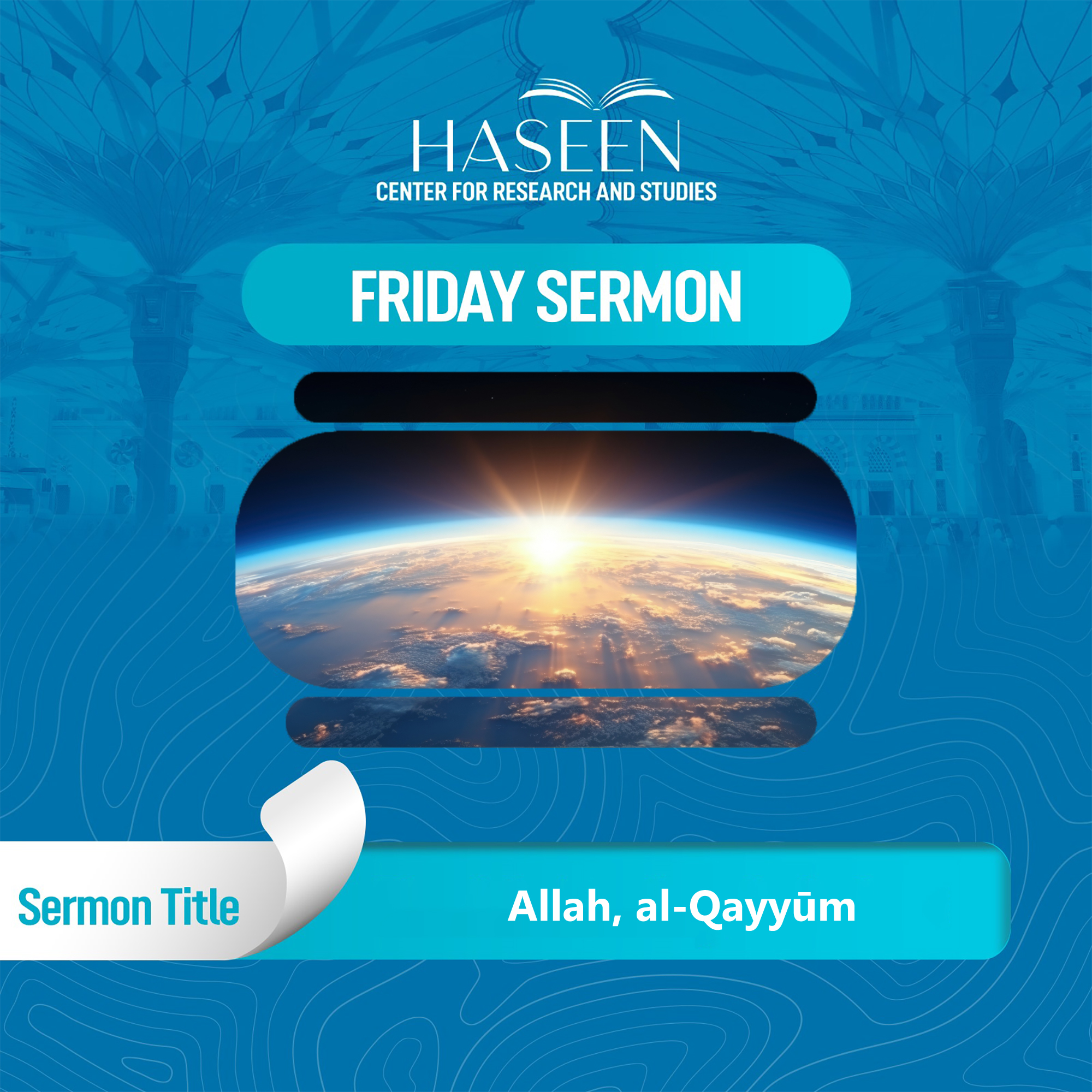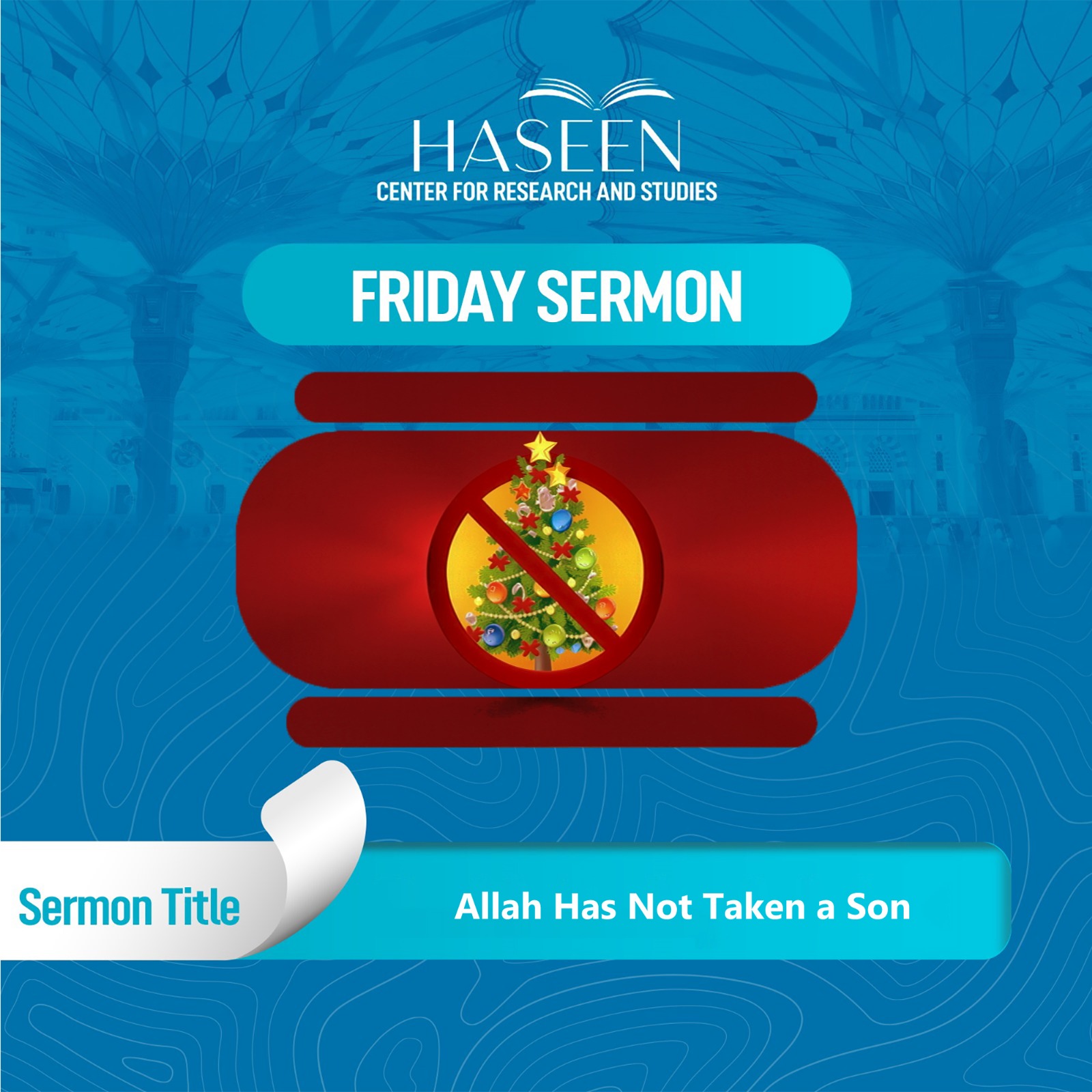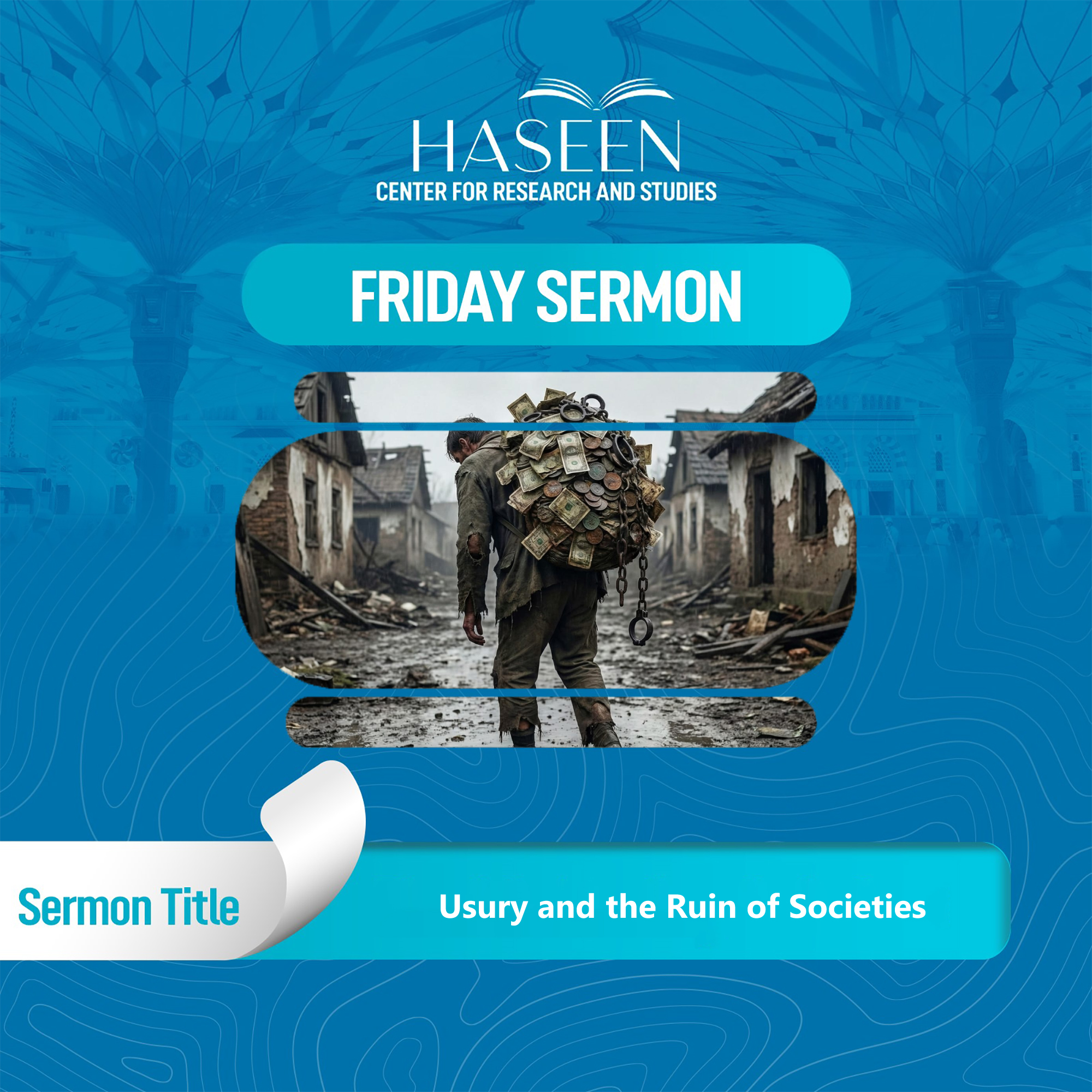Title of the Sermon:The Trial of Poverty
Main Elements of the Sermon:
1- The connection between poverty and immoral acts.
2- Islam’s methods of addressing poverty.
3- Poverty is not an excuse for immorality.
All praise is due to Allah, the Rich and Generous, Who promised relief and ease to those who fear Him, and threatened hardship and difficulty to those who disobey Him. I bear witness that there is no deity worthy of worship except Allah alone with no partner, and I bear witness that Muḥammad is His servant and Messenger. May Allah’s peace and blessings be upon him, his family, and his companions in abundance.
To proceed: Fear Allah, servants of Allah, with true fear of Him, and be mindful of Him in private and in public:
يَا أَيُّهَا الَّذِينَ آمَنُوا اتَّقُوا اللَّهَ حَقَّ تُقَاتِهِ وَلَا تَمُوتُنَّ إِلَّا وَأَنْتُمْ مُسْلِمُونَ
“O you who believe, fear Allah as He should be feared and do not die except as Muslims” [Āl ʿImrān: 102].
Servants of Allah:
The Prophet ﷺ tells us about a man who went out one night saying: “I will give charity.” He went with his charity and placed it in the hand of a thief (without knowing he was a thief). In the morning, people began talking: “Charity was given to a thief!”
He said: “O Allah, to You belongs all praise. I will give charity again.” He went with his charity and placed it in the hands of a woman who was a fornicator (without knowing). In the morning, people began talking: “Charity was given to a fornicator!” He said: “O Allah, to You belongs all praise — to a fornicator?
I will give charity again.” He went with his charity and placed it in the hands of a rich man. In the morning, they said: “Charity was given to a rich man!” He said: “O Allah, to You belongs all praise — to a thief, a fornicator, and a rich man!”
Then he saw in a dream someone giving him glad tidings: “As for your charity to the thief, perhaps it will make him refrain from stealing. As for the fornicator, perhaps she will refrain from fornication. And as for the rich man, perhaps he will take heed and spend from what Allah has given him.” (Reported by al-Bukhārī and Muslim).
A woman may fall into the pit of immorality claiming need, and a man may steal people’s wealth claiming poverty. This is the devil’s twofold scheme against the children of Ādam. Allah has informed us about it:
الشَّيْطَانُ يَعِدُكُمُ الْفَقْرَ وَيَأْمُرُكُمْ بِالْفَحْشَاءِ وَاللَّهُ يَعِدُكُمْ مَغْفِرَةً مِنْهُ وَفَضْلًا وَاللَّهُ وَاسِعٌ عَلِيمٌ
“Satan threatens you with poverty and commands you to immorality, but Allah promises you forgiveness from Him and bounty. And Allah is All-Encompassing, All-Knowing” [al-Baqarah: 268].
This is how he frightens them with poverty so that they fall into immoral acts. In the Jāhiliyyah, one of them would kill his child out of fear that the child would eat with him. Allah forbade them from this, saying:
وَلَا تَقْتُلُوا أَوْلَادَكُمْ خَشْيَةَ إِمْلَاقٍ نَحْنُ نَرْزُقُهُمْ وَإِيَّاكُمْ إِنَّ قَتْلَهُمْ كَانَ خِطْئًا كَبِيرًا
“And do not kill your children for fear of poverty. We provide for them and for you. Surely their killing is a great sin” [al-Isrāʾ: 31].
Have you not heard about the woman whom her cousin tried to seduce, but she refused? Then when hardship struck her, she agreed to commit the sin for one hundred and twenty dinars. Yet when she was about to lose her honour, she cried out: “Fear Allah! Do not break the seal except rightfully!” He then got up and left her for Allah’s sake, and Allah relieved him of his distress (Reported by al-Bukhārī and Muslim).
How many young men refrain from marriage out of fear of poverty — and perhaps Satan whispers to them about the ease of ḥarām and the difficulty of ḥalāl. Allah said:
وَأَنْكِحُوا الْأَيَامَى مِنْكُمْ وَالصَّالِحِينَ مِنْ عِبَادِكُمْ وَإِمَائِكُمْ إِنْ يَكُونُوا فُقَرَاءَ يُغْنِهِمُ اللَّهُ مِنْ فَضْلِهِ وَاللَّهُ وَاسِعٌ عَلِيمٌ
“And marry the unmarried among you and the righteous among your male slaves and female slaves. If they should be poor, Allah will enrich them from His bounty, and Allah is All-Encompassing, All-Knowing” [al-Nūr: 32].
The Prophet ﷺ used to supplicate every night before sleeping: “Settle our debts and enrich us from poverty” (Reported by Muslim).
The Prophet ﷺ considered poverty a trial and sought refuge from its evil. He said: “O Allah, I seek refuge in You from the evil of the trial of wealth and from the evil of the trial of poverty” (Reported by al-Bukhārī and Muslim).
He would also seek refuge from it to avoid humiliation, saying: “O Allah, I seek refuge in You from poverty, and I seek refuge in You from scarcity and humiliation” (Reported by al-Nasāʾī).
In fact, his seeking refuge from it reached the point where he coupled it with disbelief, because it is among the most wicked causes of it. He used to say after every prayer: “O Allah, I seek refuge in You from disbelief and poverty” (Reported by al-Nasāʾī).
It is no secret to you that the Crusaders have spread their false religion among poor Muslims, exploiting their poverty and need.
And if you want to see a revolting real-life image, look at those corrupt platforms where many men have abandoned their manhood and displayed their women for money, and women have stripped away their modesty, seeking wealth without effort.
Indeed, Islam — the complete religion of Allah — has set forth the best and most perfect means to address poverty, so that the society remains sound, cohesive, and pure from immorality and vice.
So that we may first understand that Allah withholds and grants provision with His justice and wisdom, and He has decreed both poverty and wealth. He, the Exalted, says:
إِنَّ رَبَّكَ يَبْسُطُ الرِّزْقَ لِمَنْ يَشَاءُ وَيَقْدِرُ إِنَّهُ كَانَ بِعِبَادِهِ خَبِيرًا بَصِيرًا
“Indeed, your Lord extends provision for whom He wills and restricts it. Indeed, He is ever, concerning His servants, All-Aware, All-Seeing” [al-Isrāʾ: 30].
The wealthy are tested through their wealth, and the poor are tested through their poverty. Whoever is grateful and patient will have a good outcome in both this world and the Hereafter.
Nevertheless, Islam has never called its followers to seek poverty; rather, it has commanded them to repel a decree with another decree, and to take permissible means.
Islam calls its people to lawful and pure work, and encourages them toward it. Allah says:
هُوَ الَّذِي جَعَلَ لَكُمُ الْأَرْضَ ذَلُولًا فَامْشُوا فِي مَنَاكِبِهَا وَكُلُوا مِنْ رِزْقِهِ وَإِلَيْهِ النُّشُورُ
“It is He who made the earth manageable for you, so walk among its slopes and eat from His provision—and to Him is the resurrection” [al-Mulk: 15].
Have you not heard the saying of the Prophet ﷺ: “No one has ever eaten any food better than that which he earned with his own hands, and the Prophet of Allah Dāwūd (peace be upon him) used to eat from the work of his own hands.” Narrated by al-Bukhārī.
And he ﷺ informed us that Zakariyyā (peace be upon him) was a carpenter. Narrated by Muslim.
In fact, there was no prophet except that he tended sheep. The Prophet ﷺ said: “Allah did not send any prophet except that he tended sheep.” They asked: “Even you?” He said: “Yes, I used to tend them for a few qirāṭ (small coins) for the people of Makkah.” Narrated by al-Bukhārī.
The Prophet ﷺ also laid down a golden principle regarding those who go out to earn, saying: “If he goes out striving to provide for his small children, then he is in the path of Allah; if he goes out striving to provide for two elderly parents, then he is in the path of Allah; if he goes out striving for himself to keep himself chaste, then he is in the path of Allah; and if he goes out in pride and showing off, then he is in the path of Satan.” Narrated by al-Ṭabarānī.
One of the great merits of Islam is that it considers what a man spends on his family and children to be charity. The Prophet ﷺ said: “If a man spends on his family seeking reward, it is counted for him as charity.” Narrated by al-Bukhārī and Muslim.
And because there will always be among the people those unable to work due to incapacity or illness, or whose means are too limited, Allah made Zakāh obligatory, making it one of the five pillars of Islam. He made it a fixed and determined right for the poor and needy—not an act of generosity or favor. Allah says:
إِنَّمَا الصَّدَقَاتُ لِلْفُقَرَاءِ وَالْمَسَاكِينِ وَالْعَامِلِينَ عَلَيْهَا وَالْمُؤَلَّفَةِ قُلُوبُهُمْ وَفِي الرِّقَابِ وَالْغَارِمِينَ وَفِي سَبِيلِ اللَّهِ وَابْنِ السَّبِيلِ فَرِيضَةً مِنَ اللَّهِ وَاللَّهُ عَلِيمٌ حَكِيمٌ
“Zakāh expenditures are only for the poor and for the needy, and for those employed to collect it, and for bringing hearts together, and for freeing captives, and for those in debt, and for the cause of Allah, and for the stranded traveler—an obligation from Allah. And Allah is Knowing and Wise” [al-Tawbah: 60].
And He says:
وَالَّذِينَ فِي أَمْوَالِهِمْ حَقٌّ مَعْلُومٌ * لِلسَّائِلِ وَالْمَحْرُومِ
“And those within whose wealth is a known right—for the beggar and the deprived” [al-Maʿārij: 24–25].
Islam then commanded the rulers to calculate, collect, and distribute it to those entitled to it. Indeed, Abū Bakr al-Ṣiddīq (may Allah be pleased with him) fought those tribes who withheld it.
The legislation of Zakāh is not a call to laziness or begging, but a preventative and remedial measure for those who have no worldly means. As for those who deceitfully take from the funds of Zakāh without right, they are only consuming fire into their bellies.
The Prophet ﷺ stated the rightful recipients of Zakāh, saying: “There is no share in it for a wealthy person or for one who is strong and able to earn.” Narrated by Abū Dāwūd.
A Muslim is dignified and does not ask of people except in genuine need, for the Prophet ﷺ said: “A man will continue asking from people until he comes on the Day of Resurrection with no flesh left on his face.” Narrated by al-Bukhārī and Muslim.
A quick glance in the Book of Allah shows you dozens of verses in which Allah calls His servants to spend in His cause, to comfort the poor, and to feed them. Look at how many expiations involve feeding and clothing the needy. And is there anything more beautiful than that the one striving to support a widow or a needy person is like the one fighting in the path of Allah or the one who prays at night and fasts during the day?
The Prophet ﷺ said: “The one who strives to provide for the widow and the needy is like the one who fights in the path of Allah, or the one who prays at night and fasts during the day.” Narrated by al-Bukhārī and Muslim.
May Allah bless me and you through the Noble Qur’an, and benefit me and you with what is in it of verses and wise reminders. I seek the forgiveness of Allah for me and you, so seek His forgiveness, for He is the Most Forgiving, the Most Merciful.
The Second Sermon
All praise is due to Allah, and may peace and blessings be upon the Messenger of Allah, his family, his companions, and those who follow him. To proceed:
Every guardian and person in authority must fulfill their duty of delivering rights to their rightful owners. How many poor and needy people have been afflicted with poverty because their rights did not reach them—deprived of employment or denied their due because of the influence of the wealthy.
For this reason, the Prophet ﷺ warned every person in authority who blocks the needs of the poor without right, saying: “Whoever Allah, the Mighty and Majestic, places in charge of any affair of the Muslims, and he hides himself from their needs, poverty, and hardship—Allah will hide Himself from his needs, poverty, and hardship.” Narrated by Abū Dāwūd.
One of the greatest causes of poverty is when the wealthy consume the rights of the poor—when oppression and corruption spread, and those driven by self-interest and worldly greed monopolize wealth among themselves.
The Prophet ﷺ was approached by Fāṭimah (may Allah be pleased with her), his daughter and the most beloved of people to him, asking for a servant to help her because of the labor that had physically harmed her in her husband’s house. Yet he refused and said: “I will not give you and leave the people of al-Ṣuffah twisting in hunger.” Narrated by Aḥmad.
In conclusion, we say to whoever has been bitten by the fangs of poverty: Do not let your poverty drive you to disobey your Lord, for Allah has promised relief, ease, and blessing to whoever fears Him.
The Prophet ﷺ said: “Whoever has the Hereafter as his main concern, Allah will gather his affairs for him, place richness in his heart, and the world will come to him unwillingly. And whoever’s intention is this world, Allah will scatter his affairs, place poverty between his eyes, and nothing of this world will come to him except what has been decreed for him.” Narrated by Aḥmad.
O Allah, grant victory to Islam and honor the Muslims, and destroy the disbelieving criminals. O Allah, send tranquility into the hearts of those who strive in Your path, rescue Your oppressed servants, and raise high the banner of the religion by Your power, O All-Powerful, O Almighty.
O Allah, grant us safety in our homelands, rectify our leaders and those in authority over us, and make our leadership among those who fear You, obey You, and follow Your pleasure.
Our Lord, grant us good in this world and good in the Hereafter, and protect us from the punishment of the Fire.


